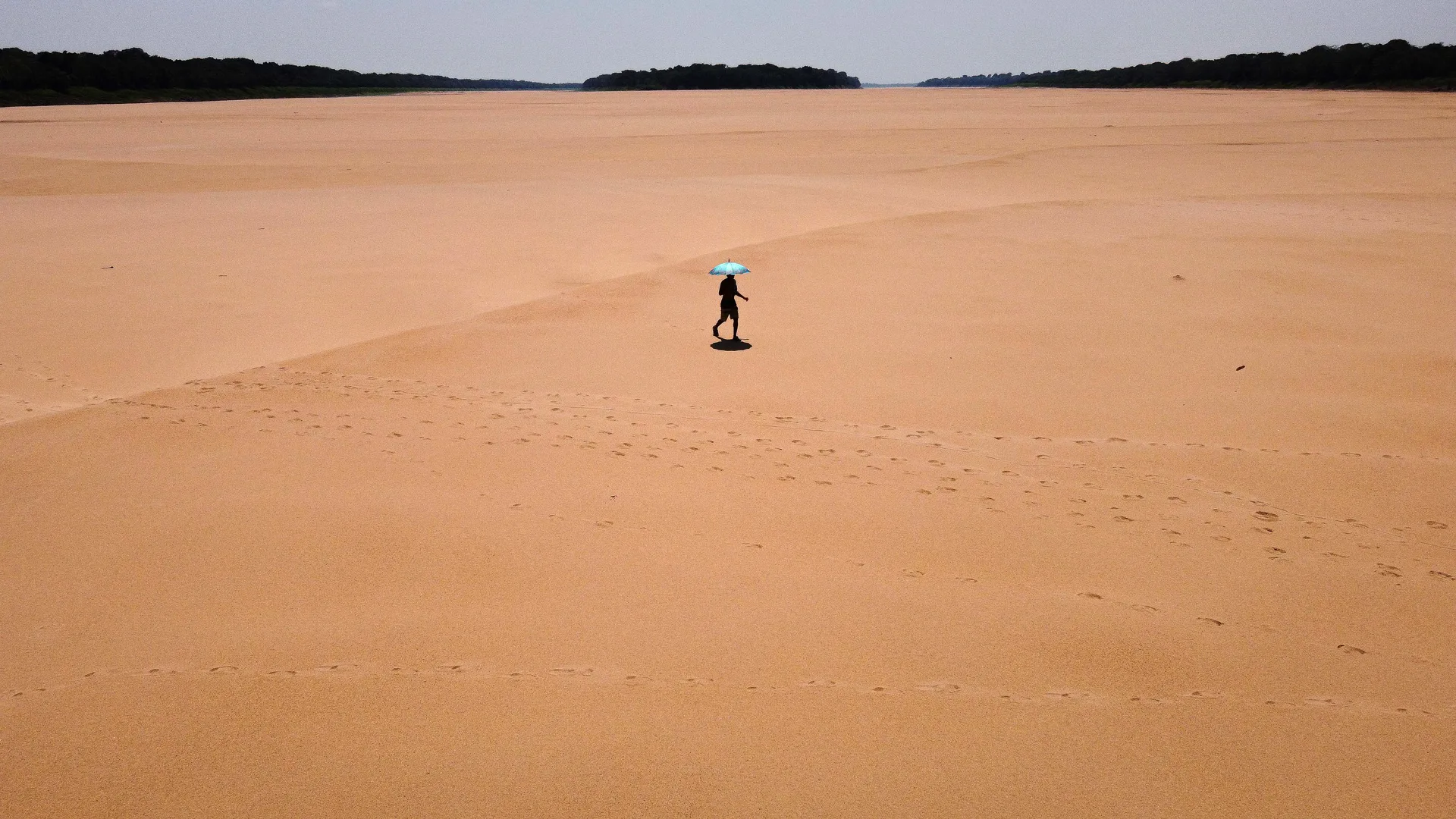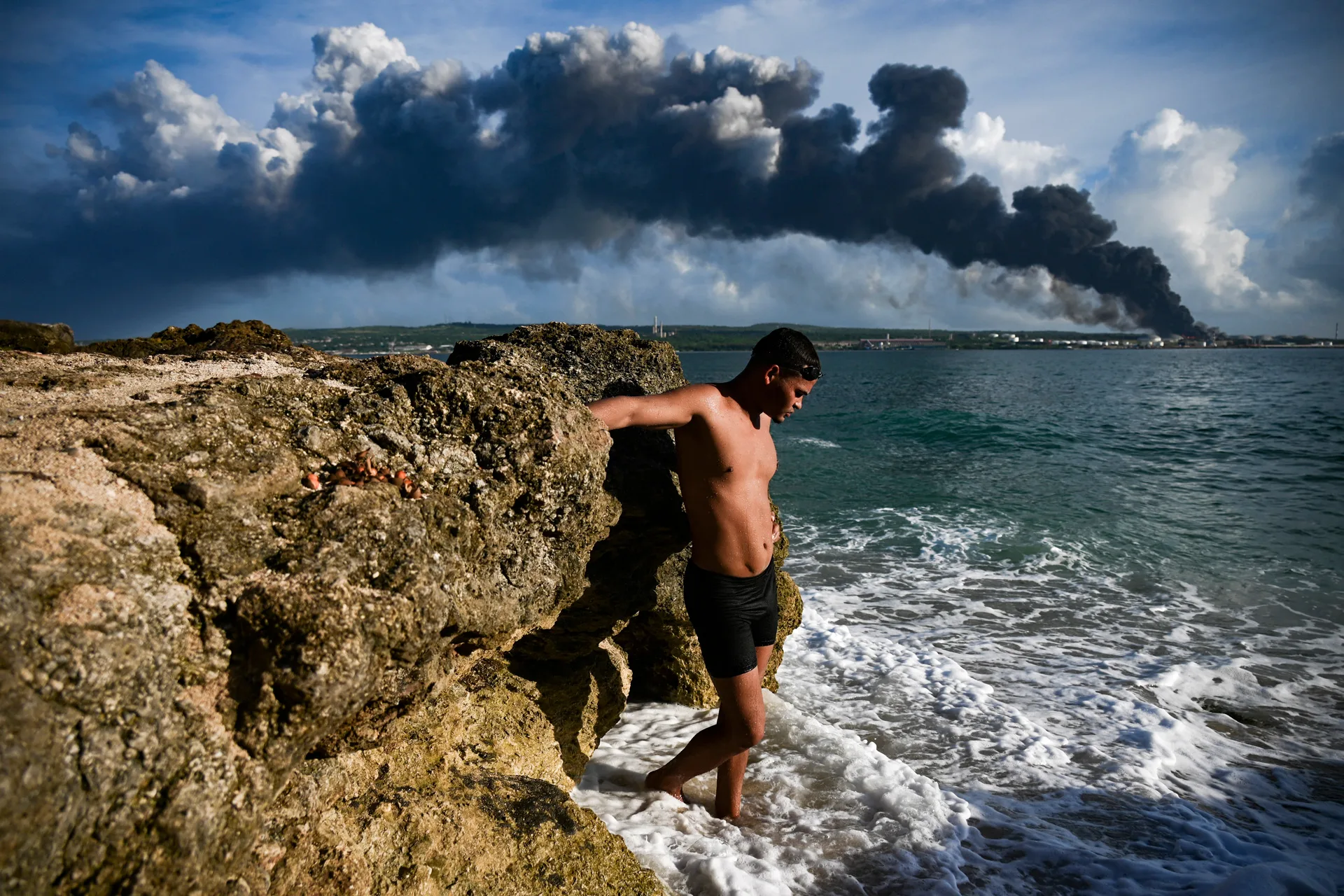The only way to cure the worst planetary fever in more than 100,000 years is with cooling planetary politics. That means the people of the world must seek together, work together and pay together for emergency treatment. First though, we must defeat the nationalist, capitalist forces that seek to divide, weaken and distract us.
This reality has become more apparent and urgent in the past month, amid ever more alarming signs of climate breakdown – from the Amazon to Antarctica – and ever more extreme delaying tactics by those who are most responsible.
Positive new ideas are emerging, including most recently a suggestion from Lula’s government in Brazil for a global tax on billionaires. But most of the world’s power holders would prefer to rely on failed market “solutions,” such as carbon credits, despite growing doubts about their effectiveness. Meanwhile time is running out.
On Sunday 21 July, the world’s average surface air temperature hit an all-time high of 17.09 degrees Celsius (62.76F), according to the Copernicus Climate Change Service, which has data going back to 1940. Climate analysts estimate it was the world’s hottest day in 120,000 years. The following day, Monday, the record was broken again.
This followed 13 consecutive monthly global heat records and at least 19 national heat records. At times the new peaks have been so far outside of expectations that scientists have admitted their computer models cannot fully account for what is happening. “We don’t have a quantitative explanation for even half of it. That is pretty humbling,” said Gavin Schmidt, a British scientist and the director of Nasa’s Goddard Institute for Space Studies in New York.
There is no doubt that the burning of trees, gas, oil and coal is the primary culprit. But there are growing concerns that other factors are now starting to kick in and accelerate the heating trend.
First, is the breakdown of forests, wetlands and other natural landscapes that normally work as a climate shock absorber by sucking carbon dioxide out of the air. At a conference in Brazil last month, scientists presented preliminary findings that these carbon sinks collapsed last year, absorbing only between 1.5 and 2.6 billion metric tons of CO2, less than a third of the amount in 2022. They said this was mainly due to drought in the Amazon and forest fires in Canada and Siberia.
The second is the weakening of the Earth’s ability to reflect heat back into space. This cooling work is partly done by the white ice at the north and south poles. But this is breaking down in the heat. Temperatures in one part of Antarctica recently hit 24 Celsius degrees above the average for the time of year in the middle of the austral winter, which has added to a protracted melt-off. On 29 July, the total extent of sea ice was at a record low for the date and nearly 4m sq km – an area bigger than India – below the 1981-2010 average.
If this was not horrendous enough, the circulation of ocean currents – which push cooling waters around the planet – is also approaching collapse due to human-caused climate disruption. A new preliminary study indicates that, on current trends, one of the biggest – the Atlantic Meridional Overturning Circulation (AMOC) – could fail by the middle of the century, which would have catastrophic consequences for much of the world.
To have any chance of halting these horrors, humanity – particularly the rich and powerful, who are most responsible for this calamity – needs to dramatically change direction. Instead of running down the planet’s life-support system, we have to build it up – by protecting and expanding forests, by cutting carbon emissions, by investing in clean energy, by recognising that Indigenous and traditional peoples are doing a better job than anyone else at maintaining planetary health. That requires a shift of money and political priorities, which has barely started to begin.
The past month has seen some encouraging baby steps in this direction, particularly on the debate over finance. Brazil has proposed a 2% wealth tax on the world’s super rich. This global levy on those with assets worth more than $1bn could yield $250bn a year to tackle the climate crisis and address poverty and inequality.
This plan, which is also supported by South Africa, Germany and Spain, will be presented at a summit of leaders from the world’s 20 biggest economies in Rio de Janeiro in November.
It makes a lot of sense. The tax would affect only a tiny number of people, who have polluted more than anyone and profited enormously in recent years. As commentators have pointed out, on average billionaires use a million times more carbon dioxide than the average global citizen in the bottom 90% of incomes. The collective fortune of billionaires rose by $2.7bn a day in the two years after the pandemic. Meanwhile the planet got hotter and many of the poor got poorer.
The money could be transformative in paying for climate stabilisation, nature protection and supporting those most vulnerable. It could go some way towards the loss and damage compensation that rich countries promised at COP 28 in Dubai last year. It is also likely to be popular. A poll of people in 21 countries found the vast majority (68%) were in favour of a tax on the super rich.
But it will come up against powerful opposition. The United States treasury secretary has already dismissed the plan. That is no surprise. The US has most of the world’s billionaires and is the biggest fossil fuel producer. Wall Street will oppose Brazil’s plan, so most likely will Elon Musk and much of Silicon Valley.
They prefer to meet their climate responsibilities with carbon trading, despite growing doubts elsewhere. Last month, the Science Based Targets initiative, an influential corporate climate watchdog released a new study that reveals carbon offsets are an ineffective tool for reducing emissions. The United Nations is also reportedly moving to oppose the use of carbon credits by companies to offset their climate footprint. The world body says companies should invest in ways to curb their own emissions rather than using accounting tricks to remove them from their books. SUMAÚMA has repeatedly reported on the flaws in the carbon trading system, which is favoured by big oil and big tech companies. In this issue, we continue to shine a light onto the challenges this poses in the Amazon with a story by Claudia Antunes and Rafael Moro Martins about contracts regarded by the Brazilian government as “unduly disadvantageous” for Indigenous peoples in the Amazon.
A global tax on the super rich, or on petrostates or big emitters, would be fairer, less prone to greenwashing and accounting tricks, and potentially more effective on the ground. But, it would also face obstruction by the gas oligarchs of Putin’s Russia, the sheiks and emirs of oil-rich Middle Eastern states, and the giant land-owners of Brazil.
Overcoming them is the key to planetary health. And it will be a battle unlike any we have known. As SUMAÚMA has noted before, this will not be fought on traditional 20th century dividing lines. People and the climate must come first or any leader – whether they describe themselves as left or right – will appear a tyrant.
Consider the case of Venezuela, where the oil clique of Nicolás Maduro is clinging onto power despite street protests and wide international condemnation of its recent election. Even Brazil, which has always been a close ally, has joined Colombia and Mexico in calling for the release of vote tallies.
The United States election has also taken a fascinating turn with the emergence of Kamala Harris – a black woman with an impressive climate record – as the Democratic Party candidate for president, against Donald Trump, who has pledged his allegiance to the oil industry and previously received funding from Russian sources. If he wins, it would be “game over” for the climate, according to influential scientist Michael Mann. If she wins, the world might still have half a chance. The other half will depend on moving away from Wall Street, big tech and the carbon market and towards the Amazon, taxation and the recuperative powers of nature.

Communities like Porto Praia, Amazonas, have been affected by droughts worsened by the climate crisis. Photo: Gustavo Basso/NurPhoto via AFP
Text: Jonathan Watts
Fact-checker: Plínio Lopes
Proofreader (Portuguese): Valquíria Della Pozza
Portuguese translation: Denise Bobadilha
Spanish translation: Meritxell Almarza
Photo editor: Lela Beltrão
Editorial workflow coordination: Viviane Zandonadi
Editor-in-chief: Talita Bedinelli
Editorial director: Eliane Brum

Exploration of fossil fuels leads to environmental disasters like this one in Matanzas, Cuba, where an oil storage facility caught fire in 2022. Photo: Yanil Lage/AFP





